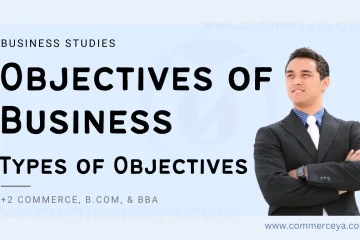Business, Profession, and Employment
Activities taken care of to earn a livelihood are called Economic activities. Such activities are divided into Business, Profession, and Employment.
Concept of Business
Businesses are organizations that are engaged in professional, commercial, and industrial activities. The accumulative efforts of individuals to produce goods and services to earn profits are also known as business. For example, a house on sale is a type of business where the goods are sold and purchased along with the services. Interestingly, the primary goal of the business is to yield more profit. It is essential to maintain social and corporate relations while running a business.
There can be four types of business organizations, i.e., sole proprietorship, partnership, company, and LLC (Limited Liability Company). Sole proprietorship and partnership businesses are considered popular businesses. Now, several businesses have a specific business plan. The primary goal of a business plan is to pinpoint and analyze a business opportunity. The structure and business plan of the organization are also indicators of the feasibility of the business.
Concept of Profession
A profession is a remunerated job that is acquired through professional training and an official qualification. In simple terms, a profession is a kind of job in which a person works. For example, doctors acquire prolonged training to treat their patients. Thus, being a doctor is a profession. People who are in a certain profession get paid for the services they deliver to other people. For instance, doctors, physicians, teachers, lawyers, accountants, psychologists, dentists, etc. are learned professionals. People possess a variety of professions. Major attributes of a profession include great preparation, accountability, a service motive, etc. A profession is a specialized body that comprises both theoretical and practical knowledge.
Interestingly, a profession includes some qualities like growth opportunities, a good working environment, good colleagues and bosses, etc. When a profession possesses such qualities, it is considered to be an ideal profession. Students must look for these qualities in a profession before going for prolonged training.
Concept of Employment
Employment is portrayed as a cordial relationship between two parties. The relationship is contract-based, wherein one party is the employee and the other is the employer. The employee gets paid for the goods and services delivered to the employer. In simple terms, when someone has a paid job, they are considered to be employed. There are various types of employment, like part-time employment, seasonal employment, full-time employment, freelancers, consultants, etc.
Now, why is employment crucial? Well, according to sociology, employment is essential to having a sense of self-satisfaction and pride. For example, a person employed at McDonald’s gets paid for each hour he or she works. Some of the foremost features of employment include the purpose for which a person is working, the necessary qualifications required, the monetary benefits and expectations of the employees, etc.
Differences between Business, Profession, and Employment
| Basis | Business | Profession | Employment |
|---|---|---|---|
| 1. Nature of work | It involves the production and exchange of goods and services. | Providing specialized personal service. | Performing the work assigned by the employer. |
| 2. Qualifications | No specific qualifications are required. | Specialized qualifications prescribed for the profession will be required. | Qualifications are linked to the nature of work to be undertaken. |
| 3. Establishment | Legal formalities, if required, will be performed. | Membership in a professional body is needed. | The appointment will be sufficient to take up the job. |
| 4. Investment | Investments are needed as per the nature and scale of operations. | Some investments are needed to set up an office. | No investment is required. |
| 5. Reward | Profit is the reward for business. | The clients charge a professional fee for service. | Salary, or wage, is the reward for service. |
| 6. Risk | It is faced with a lot of risks. | Risk is limited. | There is no risk. |
| 7. Code of conduct | Business or trade associations’ devised code of conduct should be followed. | Following the code of conduct of the professional body is essential. | Only rules and regulations related to the job are followed. |
| 8. Motive | Profit-earning is the motive. | Service to society and earning income or fees are the motives. | Earning a salary or wage is the motive. |
| 9. Transfer of interest | The transfer is possible with some formalities. | Not Possible. | Not Possible. |




